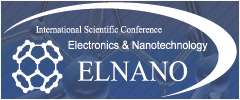Digital Circuitry
The course "Digital circuitry" is aimed at the study of the theoretical foundations and practical skills to provide the design and use of digital electronic circuits and digital devices. Scheduled in the 7th semester.
The course structure consists of a study of the theoretical foundations and components and assemblies of digital circuitry. We consider combinational and sequential circuits, memory, and the design of digital devices for programmable logic integrated circuits, some analog-to-digital and digital-to-analog converters and analog and digital timers, as well as generators of digital sequences and questions testing of digital circuits.
Labs are designed to consolidate the theoretical knowledge of students acquiring the skills of practical application of digital electronic circuits and the ability to use modern instrumentation for the study of digital circuits. Laboratory works are used in accordance with the subject of lectures and allow a detailed study of the functioning and dynamics of the electrical processes in the electronic circuits.
Course project is the final step in the study of analog and digital circuitry. The subjects of projects may relate to both analog and digital circuit design and direction of the project could be based on analog or digital circuits. Alternative solutions or combined for the project also possible.
Classes on "Digital circuitry" combine theoretical aspects of the course with practical activities of the student while working in the specialty, laboratory work and course project.
Rating is composed of student scores derived from marks for the examinations, course project, implementation and defense of laboratory work, work on laboratory and lecture classes.



